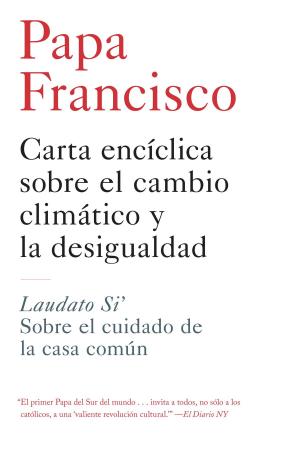Four Introductory Lectures on Political Economy
Nonfiction, Social & Cultural Studies, Political Science, Politics, Economic Conditions, Economic Policy, Government, Public Policy| Author: | Nassau W. Senior | ISBN: | 1230000281418 |
| Publisher: | LONDON: LONGMAN, BROWN, GREEN, AND LONGMANS. | Publication: | November 19, 2014 |
| Imprint: | Language: | English |
| Author: | Nassau W. Senior |
| ISBN: | 1230000281418 |
| Publisher: | LONDON: LONGMAN, BROWN, GREEN, AND LONGMANS. |
| Publication: | November 19, 2014 |
| Imprint: | |
| Language: | English |
Example in this ebook
LECTURE I.
CAUSES THAT HAVE RETARDED THE PROGRESS OF POLITICAL ECONOMY.
Political Economy, as a separate branch of study, may be said to be about a century old. Many of the facts which are its subject-matter, have indeed attracted human attention from the earliest times; many opinions, right or wrong, have been formed respecting them, and many customs and laws, beneficial or injurious, have been the consequence: but it was not until nearly the middle of the last century, that any attempt was made to reduce those opinions into a system, or to ascertain the grounds on which they were founded, or even how far they were reconcilable with one another. To M. Quesnay belongs the honour of having first endeavoured to explain of what wealth consists, by what means it is produced, increased, and diminished, and according to what laws distributed; in other words, of having been the first teacher of Political Economy. In the course of his investigations, he found that in the pursuit of wealth all governments had not merely mistaken the straight road, but had frequently pursued a path leading directly away from it. He found that instead of endeavouring to attain a beneficial end by appropriate measures, they had been aiming at a useless result by means totally ineffectual. Until his time it had been supposed that wealth consists of gold and silver, and that the quantity of gold and silver in any given country is to be increased by encouraging the exportation and discouraging the importation of all other commodities, and by the perpetual interference of governments in the modes in which the labour of their subjects is exerted, and the objects to which it is directed. Quesnay showed that gold and silver make the smallest and least important portion of the wealth of a country. And he showed that the abundance of gold and silver, and of every other commodity, is to be promoted, not by restrictions on importation, nor by bounties on exportation, but by the absolute freedom of external and internal trade; by securing to every man the results of his industry or frugality, without attempting to order him what to produce or how to enjoy.
His inquiries seem to have produced on his own mind, and on the minds of his disciples, effects resembling those which would be created by the discovery of a map by a party who had been long wandering in an imperfectly known country. His map, indeed, was often inaccurate, but the points in which it was correct were the most important, and its errors, such as they were, were not detected by those to whom he offered it. Few men have ever presented to the human mind a more interesting subject of inquiry, and few have had a more devoted band of disciples. La Riviere, Mirabeau, Turgot, and the other writers forming the school called the French Economists, all implicitly adopted Quesnay’s opinions, and engaged zealously in their propagation.
To be continue in this ebook...............................................................................................................
Example in this ebook
LECTURE I.
CAUSES THAT HAVE RETARDED THE PROGRESS OF POLITICAL ECONOMY.
Political Economy, as a separate branch of study, may be said to be about a century old. Many of the facts which are its subject-matter, have indeed attracted human attention from the earliest times; many opinions, right or wrong, have been formed respecting them, and many customs and laws, beneficial or injurious, have been the consequence: but it was not until nearly the middle of the last century, that any attempt was made to reduce those opinions into a system, or to ascertain the grounds on which they were founded, or even how far they were reconcilable with one another. To M. Quesnay belongs the honour of having first endeavoured to explain of what wealth consists, by what means it is produced, increased, and diminished, and according to what laws distributed; in other words, of having been the first teacher of Political Economy. In the course of his investigations, he found that in the pursuit of wealth all governments had not merely mistaken the straight road, but had frequently pursued a path leading directly away from it. He found that instead of endeavouring to attain a beneficial end by appropriate measures, they had been aiming at a useless result by means totally ineffectual. Until his time it had been supposed that wealth consists of gold and silver, and that the quantity of gold and silver in any given country is to be increased by encouraging the exportation and discouraging the importation of all other commodities, and by the perpetual interference of governments in the modes in which the labour of their subjects is exerted, and the objects to which it is directed. Quesnay showed that gold and silver make the smallest and least important portion of the wealth of a country. And he showed that the abundance of gold and silver, and of every other commodity, is to be promoted, not by restrictions on importation, nor by bounties on exportation, but by the absolute freedom of external and internal trade; by securing to every man the results of his industry or frugality, without attempting to order him what to produce or how to enjoy.
His inquiries seem to have produced on his own mind, and on the minds of his disciples, effects resembling those which would be created by the discovery of a map by a party who had been long wandering in an imperfectly known country. His map, indeed, was often inaccurate, but the points in which it was correct were the most important, and its errors, such as they were, were not detected by those to whom he offered it. Few men have ever presented to the human mind a more interesting subject of inquiry, and few have had a more devoted band of disciples. La Riviere, Mirabeau, Turgot, and the other writers forming the school called the French Economists, all implicitly adopted Quesnay’s opinions, and engaged zealously in their propagation.
To be continue in this ebook...............................................................................................................















